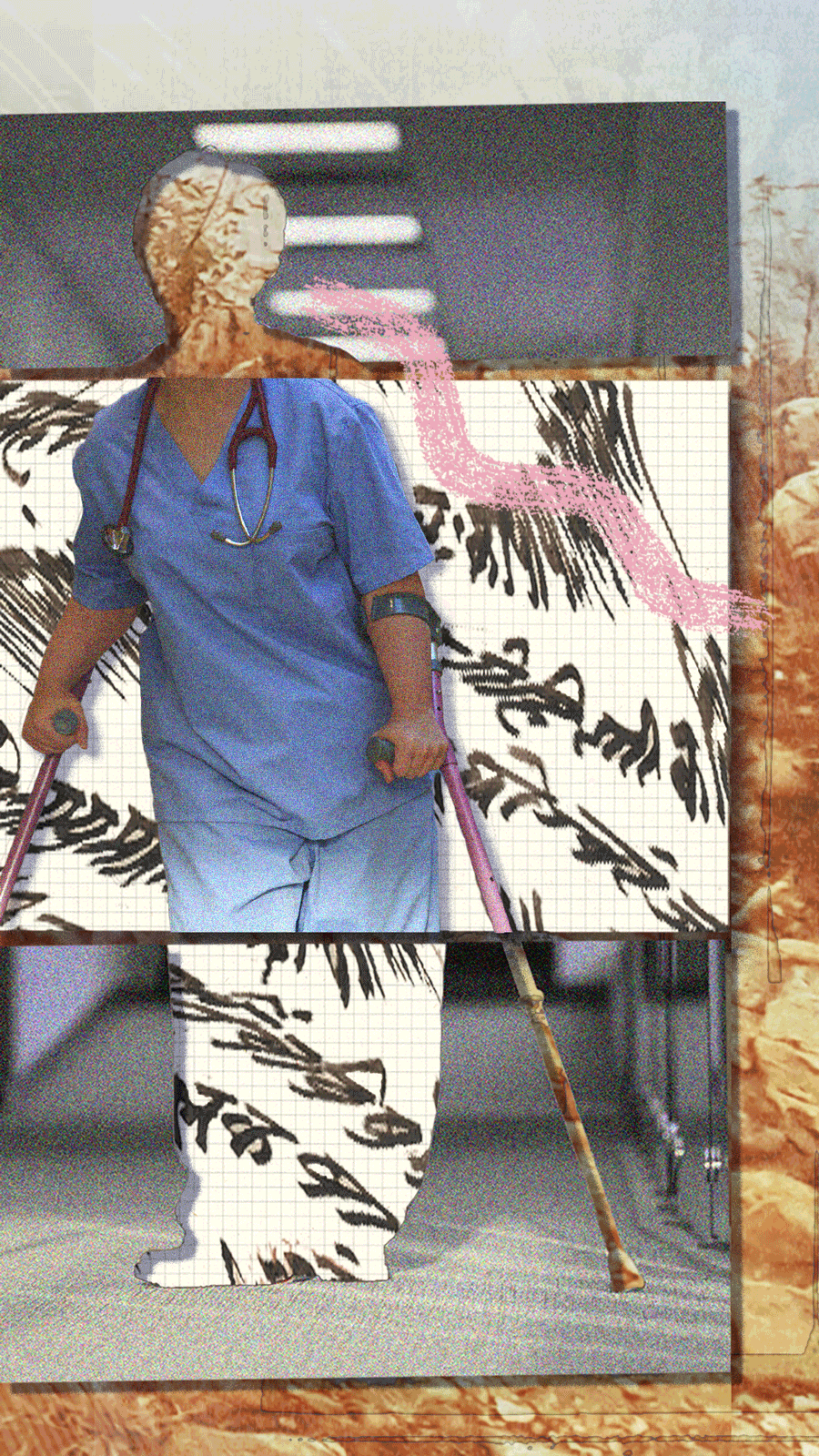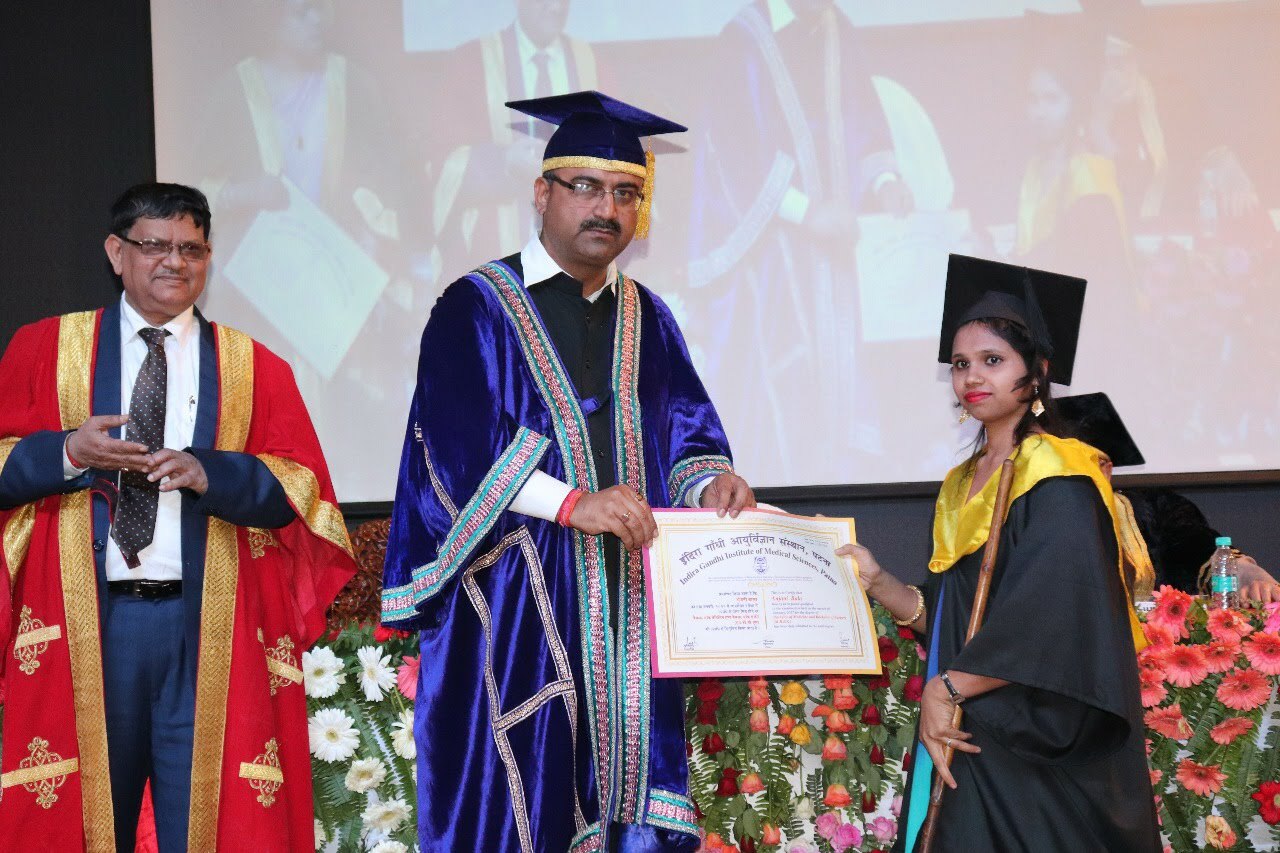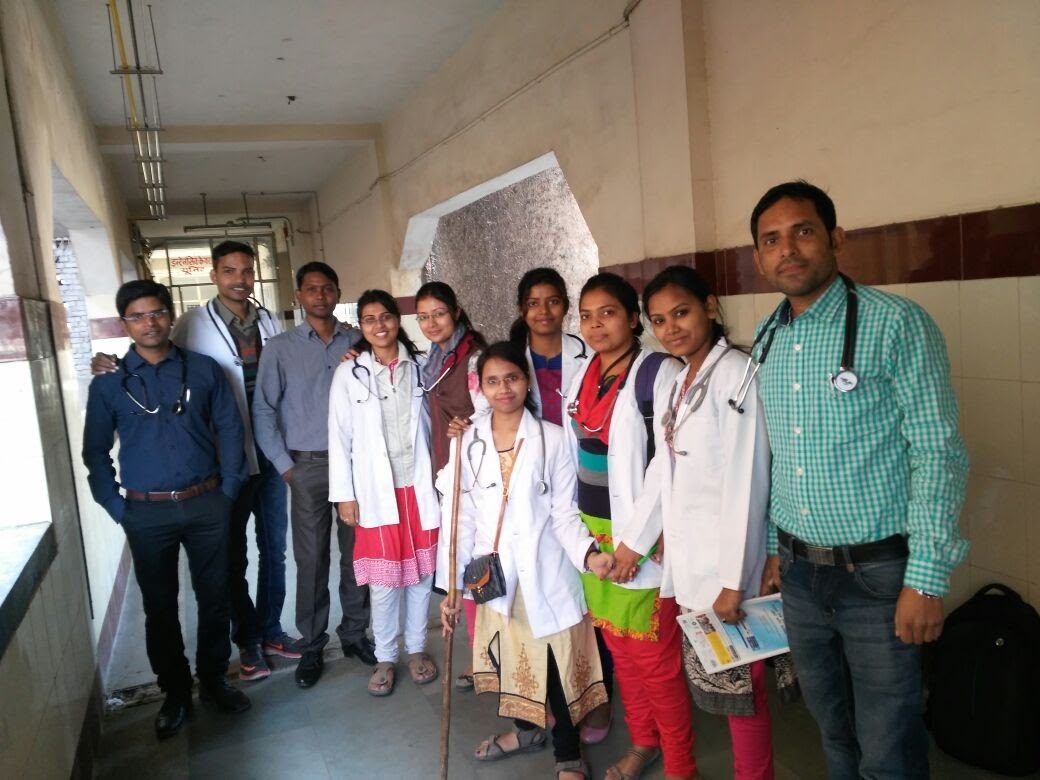
Bengaluru, India — In May last year, a distressed couple took their newborn to see Dr. Anjani Bala. Their baby, delivered in a small clinic nearby, was having severe difficulty breathing and their obstetrician had referred them to Bala for help.
But as the pediatrician walked towards the infant, the parents noticed her heavy limp and the metal calipers supporting the doctor’s legs. Bala recalled what happened next:
“Will you be able to treat our child?” the father asked Bala skeptically, staring at her leg, then he turned to his wife and asked: “Should we go to that male doctor nearby?”
“Try me once,” she told the parents at her practice in Daltonganj, in eastern India. “I know what the problem is and promise that with my treatment your baby will improve in 24 hours.”
The baby did make a full recovery – and its parents decided that day that “Daltonganj waali madam” (the madam from Daltonganj) would be the pediatrician for all their future children – but Bala said experiences like this, where patients doubt her expertise because of her disability, are common. Some, the doctor said, tell her upfront. Others stare and whisper, or simply walk away to look for a physician with no physical impairment, preferably a man.
“Often, they enter my (office) and ask: ‘Sister, where is doctor sahab (a male doctor)?’” Bala says. Female nurses in India are referred to as “sisters” and sahab is “sir” in Hindi.
“Unfortunately, our society still cannot perceive a physician to be disabled,” said Dr. Satendra Singh, head of Doctors with Disabilities: Agents of Change, a group bringing disabled physicians from across India together. According to Singh many in India continue to have the view that if someone doesn’t have a perfect body, how can they be a healer?

Dr. Anjani Bala at her graduation ceremony, in 2018, where she received a Bachelor of Medicine and Bachelor of Surgery (MBBS) degree. Courtesy Dr. Anjani Bala
A constant need to prove yourself
As a woman and a person with a disability, it took a lot to get to where she is today, Bala told CNN, and it continues to take a lot to stay there.
In 2012, Bala, whose disability was caused by contracting polio in her childhood, became the first person in her family to study medicine. But like many public spaces in India, she said her medical school, Indira Gandhi Institute of Medical Sciences, had no lifts, making it inaccessible. The difficulty getting up the stairs often resulted in her arriving late for lectures. With supportive teachers she excelled but there were still humiliations and challenges.
Bala recounted one such instance, where she had to visit a disability assessment center, a half-day’s trip away in the India’s capital, Delhi, to obtain a certificate of eligibility. The centers exist to gather data on a person’s disability to determine if they can pursue a career in medicine and what accommodation needs the student might have while attending medical school.
Bala said the tone of the assessment had been hostile. The doctor examining her insinuated that her post-pregnancy support belt was instead an attempt to cover up a more severe disability. After being sent for numerous X-rays, the mother of two said she was asked to walk unsupported by her calipers or stick.
“They knew I wouldn’t be able to walk unsupported, but they still asked me to do it,” Bala said.
Not only was she deemed ineligible to study, she told CNN that all the time spent on extra tests meant she also missed her flight home, spending the night at the airport, instead of with her newborn.

Dr. Bala (standing in front with her stick) as a student doctor. She had initially been deemed ineligible to study medicine by a disability assessment center. Courtesy Dr. Anjani Bala
For Singh of Doctors with Disabilities, Bala’s experience isn’t surprising.
“Many of the qualified candidates are screened out at these disability assessment centers,” he said. “[The assessors] tell you all the reasons you will not succeed in medical college,” adding that there were often no disabled people in these centers making the decisions.
Singh told CNN he filed a complaint with the Directorate General of Health Services (DGHS) in December 2021. One of his requests was that it become mandatory to have a doctor or health professional with a disability in each center. In March 2022, he says he received a response that the DGHS had sent a letter to all states and union territories to comply. CNN was able to confirm that one of the assessment centers in Delhi now includes a doctor with a disability on its board.
The Ministry of Health and Family Welfare, under which the DGHS sits, did not respond to CNN’s request for comment on the running of its assessment centers.
There are no official statistics of practicing doctors who have a disability in India, but their representation is low, experts explained. The proportion of candidates who identified as having disabilities and qualified for entry into medical colleges in India each year between 2020 and 2023 was around 0.3%, according to data from India’s National Testing Agency.
India’s 2016 Rights of Persons with Disabilities Act, commits to reserving 5% of places in government-run or government-funded higher education and 4% in government employment for people with disabilities.
In addition, the University Grants Commission, a statutory body that determines and maintains higher education standards in India brought in new accessibility guidelines in 2022 for all institutions. But Singh cautioned these need to be closely monitored.
The University Grants Commission did not respond to CNN’s request for comment on the implementation of its guidelines.
The ‘fragile women’ bias
According to a 2023 policy report by Women in Global Health, 70% of the workforce is women, but they hold only 25% of senior leadership roles in global healthcare.
The report found that women’s representation in leadership in national health organizations in India averages 28%, with the figure skewed by the Nursing Council where women hold 76% of leadership roles. In some organizations, the figure is as low as 1%, the report states.
An Indian doctor quoted anonymously in the study said: “Sadly, men have it easier in certain instances. They need to work hard to prove their worth – that is the end of it. But a woman needs to work not just extra hard but also prove at every instance that she has the capability to handle a leadership position in an equal or even better way than a man.”
Women with disabilities face even greater challenges.
Lisa Meeks, clinical associate professor at University of Michigan Medical School studies healthcare professionals and students with disabilities in the US and works with partners in Canada, the UK, Australia, New Zealand and India for her research. Meeks said: “Biases about women with disabilities in medicine being fragile and having reduced stamina, not being able to take on leadership roles, and that working with them would be harder and more expensive, are the biggest hurdles in their professional and academic growth.”
Discrimination is also about minimizing perceived costs. Singh again on Indian hospitals:“They feel hiring people with disabilities would increase their costs of providing access.” In the case of women specifically, he added that no one wants disruption when a woman takes maternity leave.
“I used to get upset when people pitied me. I have become stronger. I needed to prove that being in a wheelchair doesn’t mean there should be restrictions on my work. [But] I understand that it will take time for things to change.”
In 2013, pediatrician Dr. Seema Kumar survived a near-fatal accident that left her with a spinal cord injury. When she returned to work a year later, she was in a wheelchair and due to her paralysis, she could only use her right hand. A personal assistant helps her with wheelchair transfers, changing her diapers and draining her urine from a catheter.
“Initially, after my accident, it was difficult for me to understand how to manage myself and my professional life,” Kumar, whose name has been changed to protect her employment, told CNN. But she said she didn’t want to quit her profession.
When Kumar first returned to work after her accident, she said she was given lighter duties so she could acclimatize to the hospital in her wheelchair. But a few weeks later, she said her head of department approached her with a complaint from a co-worker who claimed Kumar was “not capable of doing the same amount of work as others.”
In response, Kumar said she immediately took on the full charter of duties and hasn’t stopped since.
“I needed to prove myself and demonstrate that being in a wheelchair doesn’t mean there should be restrictions on my work,” Kumar said, adding that it has taken years to build back trust with her colleagues and for them to see she is still a capable doctor. But it has also taken years for her employers to provide for her needs at work.
For the first six years after her return to work, Kumar said she needed ask the doctors with whom she said a consultancy room to give her 20 minutes to drain her catheter. When she asked for a dedicated space to do so, she said it took almost another five years because she had difficulty advocating for herself and navigating government bureaucracy.
It’s also hard to set boundaries. Kumar told CNN that at job interviews prospective employers fixate on her disability and ask intrusive questions such as: “Do you stay with your parents? Who takes care of you? Are you married? Who will take care of you when your parents are gone?”
“Only after they have all these answers, does the actual interview begin,” Kumar said “I don’t think (these questions) should be asked at a job interview. They should first judge my ability, my degree, my work, my eligibility… This is basic professionalism.”
Despite the vexatious nature of these interactions – and even of being harassed, as other medical professionals with disabilities told CNN they’d experienced, they also admitted to not speaking up in order to keep their jobs.
People with disabilities often don’t speak up for themselves, even when exploited, Singh said, because they either don’t know their rights or because they feel that their employer has done them a favor by employing them.

Dr. Satendra Singh, head of Doctors with Disabilities, at his office at University College of Medical Sciences, Delhi. Courtesy Dr Satendra Singh
Change is, however, possible. Doctors with Disabilities lead, Singh, believes awareness campaigns showcasing women with disabilities and their work can help to change attitudes. The advocate is also working to ensure disability competencies are part of the curriculum for all healthcare courses and is currently developing a course for the nursing curriculum.
But nothing can beat having policymakers listen. “Involve persons with disabilities in decision-making,” Singh says. “They will help find the right solutions.”
In the meantime, Bala and Kumar have developed their own ways of navigating the system and commanding respect.
“I used to get upset when people pitied me,” Kumar said. But “over the years, I have become stronger and conduct myself with confidence, so people respond to me with respect. I understand that it will take time for things to change.”
Bala has learned to take a stand, fighting, for example, for rights such as maternity leave, she said. But she’s also kept her sense of humor. To the patients who come to her clinic asking, “Sister, where is doctor sahab?”:
“I keep telling them, ‘I’m also looking for him!’” she laughed.


